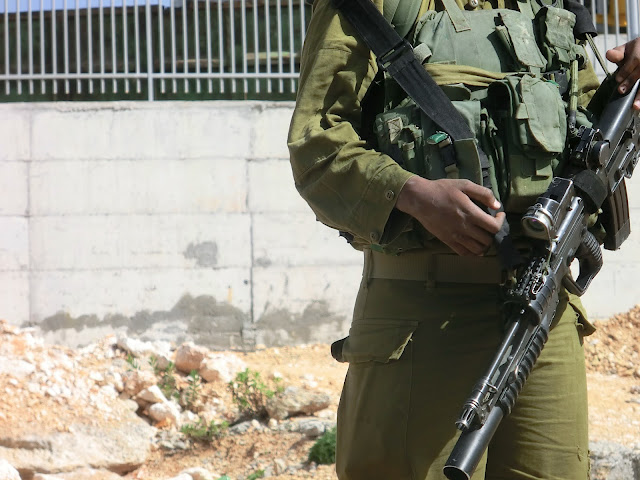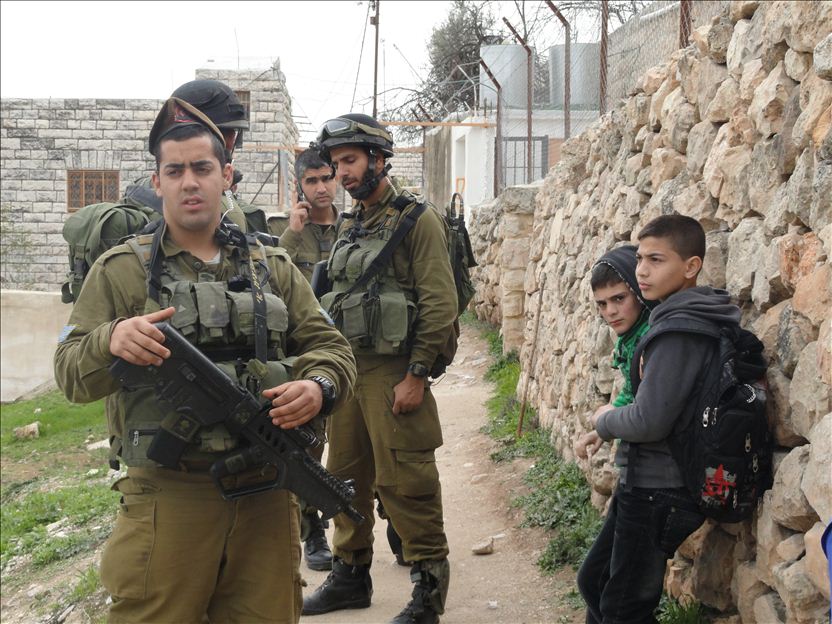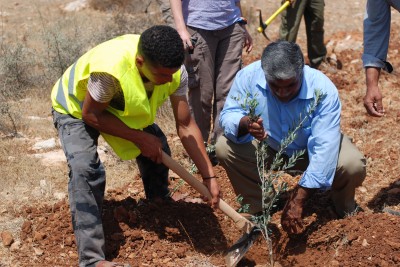Tag: Settlers
-
Bruqin avoids arrests: Planting hope for Khader Adnan
by Jonas Weber 13 February 2012 | International Solidarity Movement, West Bank Villagers of Bruqin and supporters went out today to plant trees in the field by the factory. While trees were planted alongside pictures of Khader Adnan, two young men sneaked over to the fence of the factory and put up Palestinian flags. In…
-
Hebron: At least 10 children arrested by Israeli military in one week
by Satu Gustafsson 11 February 2012 | International Solidarity Movement, West Bank The extreme Golani Unit of the Israeli military is escalating its arrests of Palestinian children in Al Khalil (Hebron), targeting boys between the ages of 12 to15 years old with at least 10 reported cases of child arrests made just in the span…
-
Turtles in Aqraba
by Jonas Weber 10 February 2012 | International Solidarity Movement, West Bank “Hurry up you turtles!” Wael yelled in the distance. He had suddenly turned this walk into some kind of contest. We skipped across the rocky landscape of Palestine, dirty and with the sun in our eyes. We were planting trees in the small…



